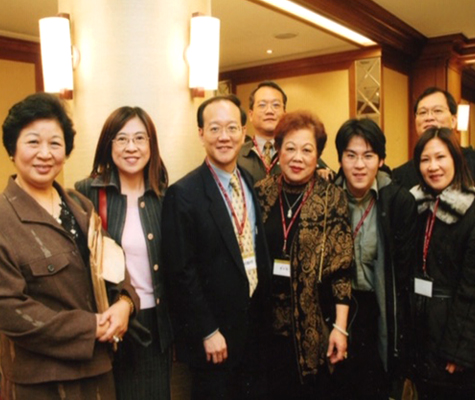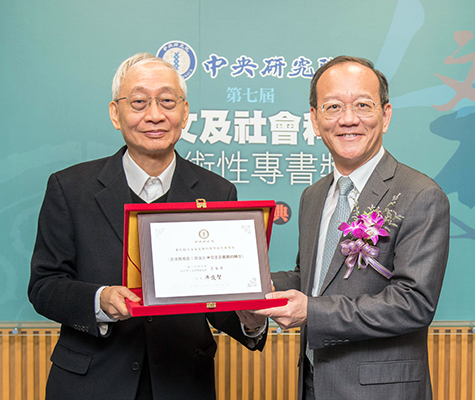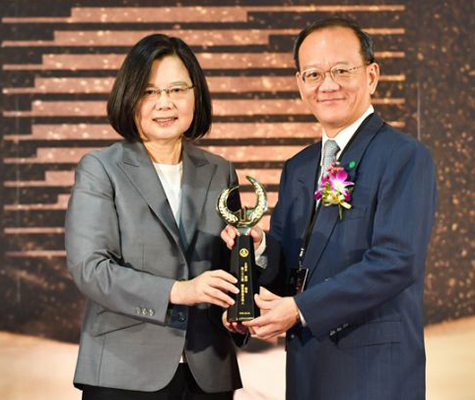Born in 1960 in Tainan, the oldest city in Taiwan, Professor Tay-sheng Wang has established the field of Taiwanese legal history in academic circles. Professor Wang was a practicing lawyer specializing in laws on corporations and securities exchange, but became a legal historian after studying in University of Washington School of Law, where he began to explore the legal history of Taiwan. He has joined the law faculty of National Taiwan University since 1993 and become a joint-researcher of Academia Sinica since 2002. Tay-sheng Wang employs traditional Chinese languages and culture, rather than today’s legal terminology, to interpret legal lives in Taiwan during the Qing period, and points out that there exist translation in legal institutions between the Qing period and the Japanese colonial period. He has published monographs and articles to illustrate the academic significance of Taiwanese legal history in English-speaking world, wining Lifetime Achievements Award of University of Washington School of Law due to “a legacy of scholarly excellence and innovation.” His articles discussing Japanese elements in Taiwan’s law are already translated into Japanese version, by which Japanese-speaking scholars become familiar with Taiwanese legal history. His articles translated into Korean allow Korean legal historians to understand the legal history of Taiwan under the same colonial rule of prewar Japanese Empire.
Revisiting legal history of colonial Taiwan by archives and empirical data, Tay-sheng Wang have pointed out some misunderstanding about the law of colonial Taiwan. For example, according to the positive law and the archives of the Government-General of Taiwan, the Governor-General had no complete legislative power, and he had no power to decide lawsuits in the colonial court. It was possible, he argued, that the “bad” incentive of making colonial laws resulted in something “good” from today’s viewpoint. The most important task for a historian is therefore to discover the social consequences of implementing the colonial law. Professor Wang discovered the civil and criminal decisions of colonial courts and compiled them. They have been open to the public since 2008. Based on the empirical studies of those decisions, he argued the “judicial consciousness” of Taiwanese had to a certain degree transformed from traditional idea to modern one by the access to modern courts. Using Japanese archives of foreign affairs and other referred materials, he considered that Taiwanese understood their Japanese nationality when they went to China or contacted those persons who came from China during the colonial period, but most of them regarded nationality as a tool for pursuing self-interests.
Professor Wang always emphasizes the diversity and continuity in Taiwan’s legal history. There are diverse legal cultures deriving from multiple origins in Taiwan. Japanese elements and Chinese elements co-exist. For exploring Chinese elements, he compiled the old archives of the ROC Supreme Court, which recorded the actual administration of the courts in Republican China. However, the legal modernization of Taiwan needs to examine from the period of Japanese colonial rule. In the 1920s, due to the policy of the extension of mainland, many modern laws of Japan’s mainland became effective in colonial Taiwan. In 1945, for incorporating Taiwan into Republican China, all of modern laws in China’s mainland extended to Taiwan. After 1949, Taiwan has de facto separated from China’s mainland, and thus Taiwan’s laws have ordinarily ignored the existence of China’s mainland. Nevertheless, the territory in law still included China’s mainland because of international and local factors in current Taiwan. This means that the ROC law has always responded to the real situation of Taiwan, called the “Taiwanization.” Accordingly, liberal constitutionalism has come true in present Taiwan due to the “minority rule” in both pre-war and post-war periods.
Professor Wang also examined the history of laws relating to Taiwan’s indigenous peoples. It is commonplace in Taiwan to criticize the law relating to indigenous peoples on the ground of its contradiction to the law or theory of foreign countries. Advocating the “jurisprudence with historical thinking,” Tay-sheng Wang consider that we must understand what happened in the past before we decide whether to adopt foreign law or not. As a first step, he explored how the Japanese authorities dealt with legal affairs of indigenous peoples by regulations, with reference to judgments made by the police in the archives. Overviewing the legal measures of all regimes in Taiwan’s history, he argued that the scope of group and living space of indigenous peoples always decreased in the law. Therefore, he strongly supports the legal reform to compensate the loss of indigenous peoples, including applying the customary law to lawsuits and enacting laws according to customs. His idea of establishing special tribunal for indigenous peoples in the court has recently come true. |



|